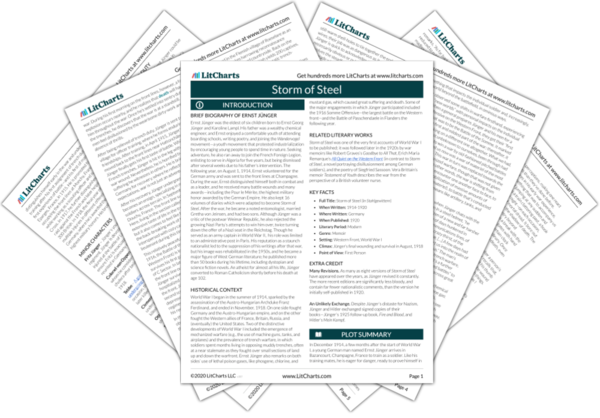Jünger, not shrinking from the disorienting storm of shelling, charges into the fray to lead his men, showing again that duty is the defining characteristic of a good soldier. Hearing about the potential loss of his brother, however, is the most devasting moment of the war for Jünger—a crack appearing in his steadfast façade for the first time.
